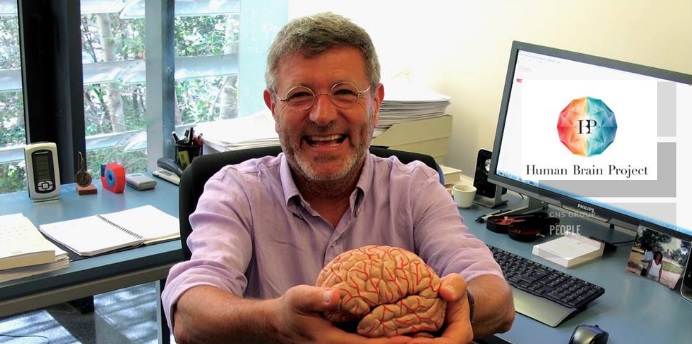FET Flagship Human Brain Project, continues on its way
FET Flagship Human Brain Project, continues on its way
Thanks to a specific grant agreement signed between the European Commission and the coordinator of the HBP, which includes the participation of Gustavo Deco, director of the Center for Brain and Cognition, ICREA research professor with the Department of Information and Communication Technologies.
On 30 August, the European Commission and the Federal Polytechnic School of Lausanne in Switzerland (EPFL), coordinator of the Human Brain Project (HBP), signed the first specific grant agreement (SGA1) to achieve a “lasting European research infrastructure”, as stated by Chris Ebell, HBP executive director. This second phase, lasting two years, started retroactively on 1 April 2016 and will end in late March 2018, with a planned budget allocation of 89 million euros.
The decision was taken after the HBP, one of the priority flagship projects of the European Commission within the Future Emerging Technology category (European Commission FET Flagships), had passed the second periodic review of the Commission thanks to the significant progress made in the initial period of the project (Ramp-Up Phase), from October 2013 to March 2016. Now, the main goal of the SGA1 work plan is to create scientific research infrastructures based on ICT, to study in depth the brain, cognitive neuroscience and computational simulation.
The Center for Brain and Cognition is responsible for some of the sections of the project
 Gustavo Deco, director of the Center for Brain and Cognition (CBC) and ICREA research professor with the Department of Information and Communication Technologies (DTIC) at UPF, is responsible for the study of spontaneous models of brain activity and the development of sensory motor integration models, within work package 4.4 “Models of Cognitive Processes”. He is also participating in the only scientific subproject aimed at developing theories, SP4 “Theoretical Neuroscience”, in which he leads one of the six work packages, for which there are five assigned tasks.
Gustavo Deco, director of the Center for Brain and Cognition (CBC) and ICREA research professor with the Department of Information and Communication Technologies (DTIC) at UPF, is responsible for the study of spontaneous models of brain activity and the development of sensory motor integration models, within work package 4.4 “Models of Cognitive Processes”. He is also participating in the only scientific subproject aimed at developing theories, SP4 “Theoretical Neuroscience”, in which he leads one of the six work packages, for which there are five assigned tasks.
Six ICT research platforms and more than 100 research institutions
The Human Brain Project began in 2013 for implementation in 10 years. It includes leading researchers from more than a hundred institutions, universities and research centres across Europe, and is structured around six research platforms based on ICT: neurocomputing, brain simulation, high-performance analysis and computing, medical computing, Neuromorphic Computing and NeuroRobotics. These platforms translate in turn into twelve subprojects (SP), four of which are scientific, six technological and two deal with ethical issues and the management of the project, respectively.
